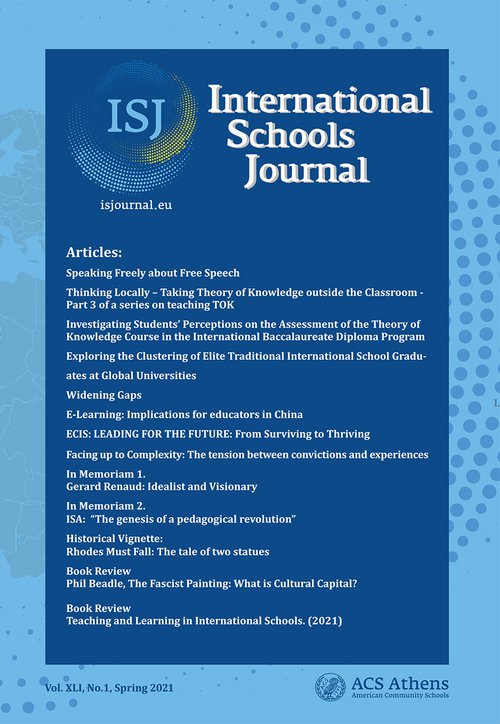ISJ Spring 2021: Widening Gaps / Conrad Hughes
10,00€
The Coronavirus that first appeared in Wuhan and then rapidly became a global health crisis has disrupted schools and universities in unprecedented ways. Successive lockdowns across the planet have led to a cumulative deficit of about one year’s schooling and, according to some studies, this educational loss might have adverse effects on the economy for more than 60 years to come (Coughlin, 2020).
The pandemic has widened gaps between countries, systems and schools. This is essentially related to differences in infrastructure. Some countries have wide-scale broadband access, well-developed online learning capacity and, therefore, have been able to adapt to the challenges of Covid relatively quickly. Others, on the other hand, do not, and have been living through Covid with patchy solutions such as using social media platforms or highly asynchronous, minimally scaffolded educational strategies.
These gaps, related to access and infrastructure, exist within countries among different sectors of the population. In the United States, for example, the racial socio-economic divide has become increasingly exacerbated because of educational gaps caused by Covid (Francis & Weller, 2020). In England, some argue that the educational gaps caused by Covid have caused a widening of almost 50% between rich and poor, affecting mainly BAME and disadvantaged students (Adams, 2020).



